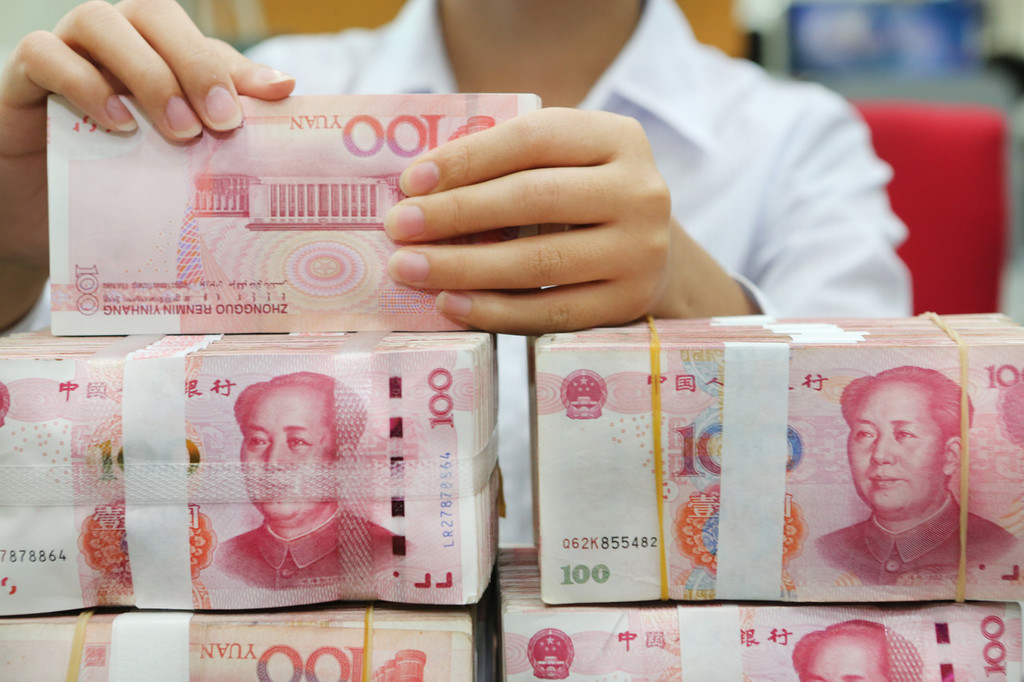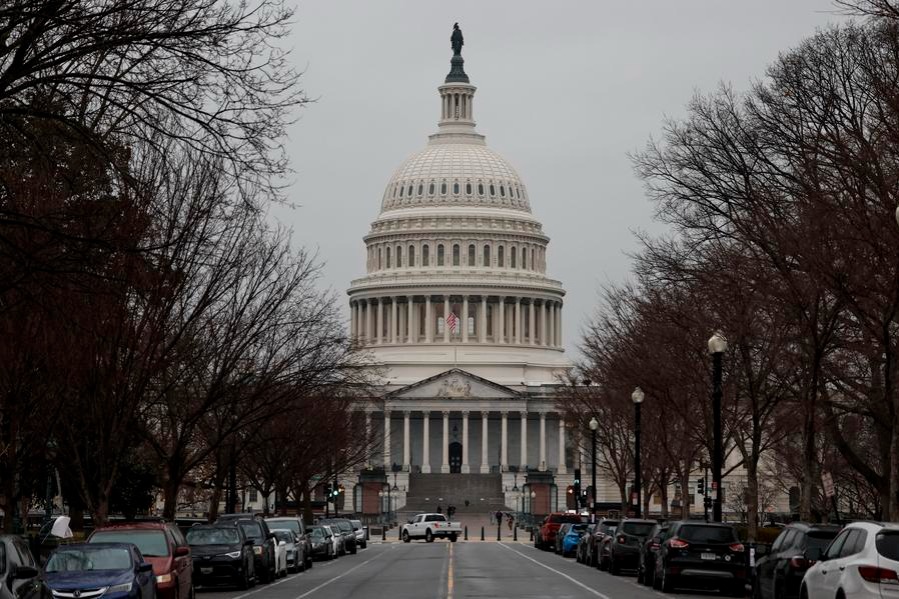Safegurading HK's financial center critical to its rebirth


As November arrived, the “black revolution” riots took a turn for the worse to become terrorism, with rioters setting a member of the public on fire and violently attacking the police. Meting out extra-judicial torture has become commonplace. The once-picturesque Chinese University of Hong Kong was turned into a scene of desolation overnight. Sharing the same fate with its counterpart, the Hong Kong Polytechnic University, the City University of Hong Kong and Hong Kong Baptist University were occupied as bases for riots. The nine local universities were forced either to prematurely end the semester or switch the classes into online lectures. Students from the mainland were so threatened that they had to return to their hometowns, while their classmates from Taiwan and overseas fled Hong Kong. The SAR government conceded that Hong Kong was no longer a safe city.
On Nov 17 and 18, anyone who is concerned about Hong Kong, the once-famed “Pearl of the Orient”, was distressed to witness several footbridges in Hung Hom being torched by thugs occupying the Polytechnic University. Some mainstream media from the West commented that these fires were accelerating the decline of Hong Kong. Nevertheless, I believe the city is actually going through a critical moment of rebirth during its worst times.Thanks to 30 years of continued development before the Asian financial crisis occurred some 20 years ago, Hong Kong braved the economic recession with incredible resilience. At that time, political, economic and social problems were already being exposed — albeit they were not very serious.The local economy has entered its first recession since 2009, which is the result of intensifying major changes in the global political landscape rarely seen in a century. This is occurring while deep-seated political, economic and social issues have been unraveling during the current unrest. The repercussions of this recession may exceed the previous ones that hit Hong Kong 10 or 20 years ago.
Hong Kong’s status as an international financial center can be strengthened and enhanced only by means of integrating itself into the country’s overall development before the first half of the 21st century
These problems were exacerbated in the once-in-a-century financial tsunami induced by the United States a decade ago. While a recession was sweeping countries around the world, China was on a peaceful but steady rise. Its strong economy played a key role in forestalling a global economic fallout similar to the Great Depression in the 1930s. The remarkable economic integration between Hong Kong and the Chinese mainland, leveraging on the latter’s sustainable economic growth, helped Hong Kong shake off a recession.
At present, economic globalization is hindered by waves of events such as the US’ adjustment of its global strategy and China policy. For Hong Kong, as its external foreign trade model alters, so will its international financial landscape.
It is just a matter of time before the “black revolution” starts to affect financial markets in Hong Kong. Beijing and Washington can reach a partial trade agreement, but the rivalry between China and the US will likely extend beyond the near future. In order to contain China, it is impossible for the US not to take measures to prevent Hong Kong’s financial market from serving the Chinese mainland.
From the onset of the “black revolution”, many people have subscribed to the notion that if the central government exercises its constitutional powers to end the violence and chaos in Hong Kong, then the SAR will be stripped of its status as an international financial center. This is simply alarmist talk. To start with, even if Beijing invokes Article 18(4) and Article 14(3) of the Basic Law, it is merely discharging its responsibility to defend “one country, two systems”. Besides, the rule of law is the very foundation of Hong Kong’s international financial center; defending it will require actions to end violence and restore order. The third argument, which is by no means of less importance, is that Hong Kong’s status as an international financial center can be strengthened and enhanced only by means of integrating itself into the country’s overall development before the first half of the 21st century. Crushing the “black revolution” and curbing separatism are in line with this goal.
America, Britain, and several other Western countries have a significant stake in Hong Kong. In particular, US capital plays a leading role in emerging financial businesses, while British capital dominates the traditional banking industry in the Hong Kong’s financial market. This is exactly the reason why the local financial markets have shielded themselves from the impact of the “black revolution”.
Nonetheless, as long as Beijing does not accept the so-called “five demands” while at the same time it urges the SAR government to step up its efforts to quell the riots, Washington and London will eventually include Hong Kong’s financial markets in their plots with Beijing.
On the sidelines of the 11th BRICS Summit in Brasilia, President Xi Jinping affirmed that “the most pressing task for Hong Kong at present is to bring violence and chaos to an end and restore order”. He said: “The Chinese government has an unswerving determination to protect national sovereignty, security and development interests, implement the ‘one country, two systems’ policy, and oppose any external forces interfering in Hong Kong’s affairs.” Therefore, ending the riots before financial markets are affected will be the key to Hong Kong’s rebirth.

































